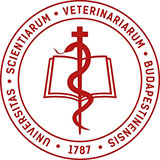Detailed introduction of the University of Veterinary Medicine Budapest:
Introduction
The University of Veterinary Medicine Budapest is the only veterinary university in Hungary and one of the oldest veterinary universities in the world, founded in 1787. The school is supervised and established by the Hungarian Ministry of Education. It has the right to award Doctor of Veterinary Medicine (D.V.M.), Bachelor of Biology and Doctor of Philosophy in Veterinary Medicine. Its English courses were launched in 1992 and it has more than 30 years of experience in teaching international students.
Overview
Student size: The school has a total of 1,200-1,300 students, of which international students account for as high as 65%-67%. It is one of the most international veterinary universities in Europe.
Faculty: Although the specific number of faculty and staff is not clear, judging from its teaching quality and scientific research results, it has a group of knowledgeable and experienced teachers. All teachers have deep professional knowledge, are approachable, have good English speaking skills, and can provide students with high-quality education and teaching services.
History
In 1787, the "Animal Therapy Association" was established in the Medical College in Pest (now a district of Budapest), which was the predecessor of the school.
In 1851, the "Animal Therapy Association" was independent from the Medical College and renamed the "Royal Veterinary Institute".
In 1899, the college was renamed the "Royal Veterinary College" and obtained D.V.M. degree.
In 1934, the Budapest University of Technology and Economics was established, and the Royal Veterinary College was incorporated into it and became a subordinate college of the university.
In 1945, the college was briefly affiliated with the University of Agricultural Sciences.
In 1962, the college officially became an independent university.
In 2000, due to the national reorganization of higher education institutions in Hungary, the Royal Veterinary University was allocated to the University of Szent Stephen - Veterinary College.
In the summer of 2016, the college became independent again and continued to use the name "Budapest Veterinary University".
School Strength
Teaching Resources and Facilities: The school has modern teaching facilities, including small animal clinics and large animal clinics equipped with advanced equipment, veterinary science libraries, archives, museums, computer rooms, etc., and also has a 1,300-square-meter campus 30 kilometers away from Budapest. The hectare field teaching base provides students with rich practical teaching resources.
Scientific research cooperation and academic achievements: As a veterinary university with a long history, it has a deep scientific research accumulation in the field of veterinary science, and its scientific research results have been recognized to a certain extent in Europe and even the world. The school actively carries out international scientific research cooperation projects and has established cooperative relations with many internationally renowned universities and scientific research institutions to jointly promote the development of veterinary science. In 2013, the school was awarded the title of Research College for its outstanding scientific achievements.
Institutional nature
Public university.
Educational philosophy
Aims to cultivate professional talents who can be competitive in all fields of the veterinary industry, focusing on the educational model that combines theory with practice. Through practice-oriented group training, students can master solid professional knowledge and skills in practice, improve their ability to solve practical problems, and adapt to the development needs of the veterinary industry.
Key laboratories and disciplines
Key disciplines: Veterinary medicine is the core key discipline of the school, covering animal anatomy, histology, embryology, physiology, pathology, pharmacology, toxicology, microbiology, immunology, animal nutrition, animal hygiene, veterinary surgery, obstetrics, food hygiene and other fields. In addition, biology is also one of the school's important subjects, providing basic support for the development of veterinary medicine.
Key Laboratory: The school has a unique horse clinic in Europe, equipped with advanced equipment such as horse isolation and bone surgery facilities, providing a professional platform for the research and treatment of horse diseases. At the same time, the school's laboratories also undertake a number of scientific research projects, providing important support for the research and teaching of veterinary science.
Department
The school does not clearly divide multiple departments, mainly focusing on teaching and research related to veterinary medicine, offering undergraduate and master's programs in veterinary medicine, as well as bachelor's degrees in biology and doctoral degrees in veterinary philosophy.
Ranking
The school is one of the top veterinary universities in Europe. It was accredited by the European Association for Veterinary Education (EAEVE) in 1995. It is the 7th university to obtain this accreditation among the 97 veterinary universities in Europe. Its graduates are eligible to take the Canadian or American Veterinary Board Examination.
Expenses
Application fee: 200 euros.
Examination fee: 250 euros.
Tuition fee: 6730 euros for the first semester + 4200 euros for the second semester, 10,980 euros for the whole year, of which the first semester includes 800 euros. Deposit in Euros, payable two weeks after admission, non-refundable.
Campus
Location and environment: The main campus is located between the ancient buildings and green parks of Budapest, with convenient transportation, beautiful surrounding environment and strong cultural atmosphere, providing students with a good learning and living environment.
Campus facilities: In addition to teaching buildings, the campus is also equipped with campus cafeterias, cafeterias, mental health counseling, gyms, study rooms and other living facilities, as well as learning resources such as veterinary science libraries, archives and museums with rich collections to meet students' daily life and learning needs.
-
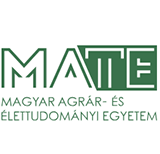
Hungarian University of Agriculture and Life Sciences
-
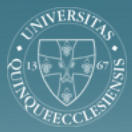
University of Pécs
-
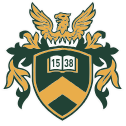
University of Debrecen
-

Budapest University of Technology and Economics
-
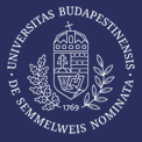
Semmelweis University
-

University of Pannonia
-
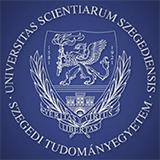
University of Szeged
-
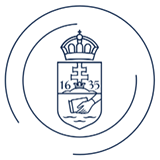
Eötvös Loránd University
-
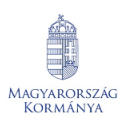
University of Miskolc
-

University of Sopron
-

Mesoamerican University
-

Istmo University
-

Mariano Galvez University of Guatemala
-

Regional University of Guatemala
-

Galileo University
-

Francisco Marroquín University
-

Rafael Landívar University
-

University of the Valley of Guatemala
-

University of San Carlos of Guatemala
-

Technological Institute of Tlaxcala Plateau
-

Golfo University
-

Technological University of South Sonora
-

Technological University of Huejotzingo
-

Tizimín Institute of Technology
-

Chilpancingo Institute of Technology

